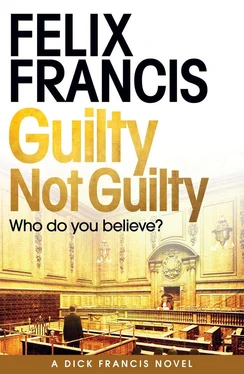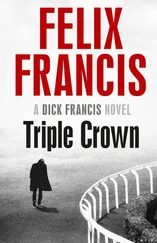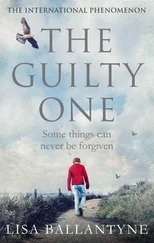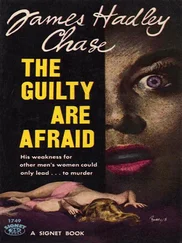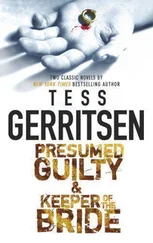‘Where’s my phone?’
The sergeant consulted his computer.
‘Your phone is subject to a police evidence seizure notice, as is your car and your computer, so they will be held by us for the time being while forensic investigations continue.’
‘How about my wife’s car?’
‘Where is it?’ asked the sergeant.
‘I assume it’s in the garage at my home but I don’t know. I didn’t check. And where are my house keys, anyway?’
‘You have it. I just gave it to you.’
‘That was my brother’s house key,’ I said. ‘Where are mine?’
‘I’ve no idea,’ said the sergeant. ‘The only key in the inventory of your belongings is the one you’ve already got.’
That would be because the padlock keys hadn’t in fact been my keys in the first place.
‘But there’s a black suitcase and a coat in the store under your name.’
‘Good,’ I said. ‘I’ll take those.’
One of his staff appeared with my things and, much to the custody sergeant’s obvious irritation, I lifted my case up onto the top of his desk and opened it.
It had clearly been thoroughly searched, with the pockets of my dinner jacket and trousers pulled inside out to ensure they were empty, but, as far as I could tell, everything I had taken to Wales was still there — other than my dignity, and my wellingtons, which I assumed were still in the boot of the Jaguar.
‘Can you ask DS Dowdeswell for the keys to my house?’
‘Does he have them?’
‘I presume so. They’re the keys to the padlocks that you lot applied.’
A call was made but the outcome was unsatisfactory, at least as far as I was concerned.
‘It seems your house remains a place of interest to the investigation. A second search of the premises is being conducted there even as we speak.’
‘Looking for more dog bones, are you?’ I asked sarcastically, but he didn’t know to what I was referring and my joke fell completely flat. ‘When can I go back there?’
‘Not until the search is complete.’
‘When will that be?’
‘Depends on what they find,’ the custody sergeant said unhelpfully. ‘We’ll let you know.’
‘How?’ I said. ‘You have my phone and my computer.’
‘You’ll have to contact us, then. But I’d give it at least a day or two.’
‘Can I get my wife’s car from the garage in the meantime?’
I don’t know why I bothered to ask. I knew the answer would be no.
‘Not until the search is complete.’
I put on my coat, picked up my suitcase, and was escorted through to the public side and then to the front door. Here, I paused, checking for any sign of more press photographers, but all looked clear so I stepped out into the late-October sunshine.
I stood for a moment looking up at the blue sky and realised how we all took liberty for granted. Only when we were deprived of it, albeit even for a very short period, did our lack of a distant horizon become so significant.
Where to now?
I couldn’t go home to the Old Forge in Hanwell and I had no available car to get to Wales, even though, I suppose, I could have taken a train from Banbury to Wrexham and then asked my father to pick me up from there. But I didn’t have any appetite for going back to the castle, only to have another fight with my elder brother.
I decided that I’d return to Chester Square. Douglas had said I could stay as long as I wanted, so I was sure he wouldn’t mind me sleeping in Philip’s unused bed for another couple of nights.
I walked down through the town to the railway station, stopping off at a mobile-phone shop to buy a pay-as-you-go smartphone.
Instant communication was another thing we took for granted. There are now officially more mobile telephones in the world than there are people, and being disconnected from the network was tantamount to being a non-person, an outcast, a reject from society.
‘Name?’ asked the young man in the shop.
‘Why do you need my name?’ I asked.
‘Regulations.’
‘Jones,’ I said. ‘Henry Jones.’
‘Any ID? Driving licence or a utility bill? Something with your address?’
‘Not on me,’ I said, patting my pockets.
‘Doesn’t matter,’ he said, smiling. ‘No one will ever know.’
He typed Henry Jones into a computer without question.
‘Address?’
‘It’s 262 West Street, Coventry, CV1 7QT.’
He typed that in too without checking, which was just as well because I’d also made it up. I had no idea if there even was a West Street in Coventry and that wouldn’t have been the postcode even if there were. It seemed easier than telling him that I was William Gordon-Russell, notorious accused husband of the woman recently murdered down the road in Hanwell village.
‘How much data do you want?’ the young man asked.
‘How much do I need?’
‘Depends what you intend doing. Downloading films and videos takes the most. That and streaming live TV, or internet gaming.’
I shook my head. ‘Just enough for my emails and some Google searches.’
‘Five gigs should be plenty for that,’ he said. ‘You can always top up if you need more.’
He showed me how to add email accounts and I paid for the phone with cash, to avoid giving him a bank card with a different name on it than Henry Jones.
Hence I became, once again, a fully fledged member of the human race.
I walked on to the station but I didn’t catch a train to London.
Instead, I took one to Oxford, and, contrary to Douglas’s advice, I went to the opening of Amelia’s inquest.
My presence in the Coroner’s Court caused quite a flurry of excitement and not just among the assembled media. Not that I had intended it to, but circumstances overcame me.
The hearing was scheduled for two o’clock and I had caught the train from Banbury at just after midday, arriving into Oxford station at half past. Hence, I had been early at the court and had slipped into the public area unseen, partly by wearing my tweed cap, and with my Barbour jacket collar turned up. I chose to sit on the back row of benches.
As the time drew near, the court began to fill up; due, no doubt, to the extensive media coverage and the public’s love of anything morbid, and especially of violent death. I shuffled along the bench until I was tight against the wall in the far corner from the door, still with my cap pulled down to my eyebrows.
‘All rise,’ announced the court usher, and the coroner came in and took his place behind his bench. He sat down and we did too.
The court itself was a very fine affair, having been built in 1841 with magnificent tall arched windows and an extremely high ceiling. It had originally been the city’s Assizes and Quarter Sessions court, and later served as the Crown Court before the construction of the new Oxford Combined Court building in St Aldates in the mid-1980s. It was now part of Oxfordshire County Council offices and access was gained, rather ignominiously for such a grand setting, through the staff canteen.
The interior had changed very little since its time as a Crown Court, with extensive grey-painted wooden divisions separating the different areas. In the centre of the court, with a high solid back to prevent access for the defendant to and from the public, was the old dock with its steep flight of wooden steps leading up from the holding cells beneath, still connected in turn via a subterranean passage to the nearby Oxford Prison, itself now converted into a luxury hotel.
The dock served no purpose in the current usage, other than to block the floor of the court from my view, but it was here in July 1976 that the infamous Donald Neilson, nicknamed the Black Panther, had stood trial for the kidnap, ransom and subsequent murder of seventeen-year-old heiress Lesley Whittle.
Читать дальше
